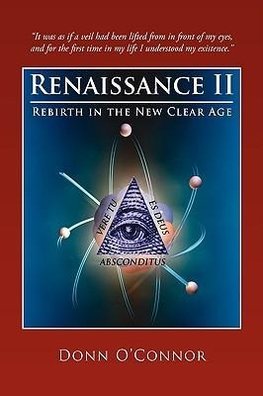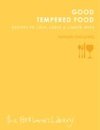
-
 Anglický jazyk
Anglický jazyk
Renaissance II
Autor: Donn O'Connor
The author is a decorated Korean War veteran and a graduate of the University of Wisconsin, having earned a Bachelor of Business Administration degree. He has devoted his career to the insurance industry, serving in administration, marketing, and sales,... Viac o knihe
Na objednávku, dodanie 2-4 týždne
33.09 €
bežná cena: 37.60 €
O knihe
The author is a decorated Korean War veteran and a graduate of the University of Wisconsin, having earned a Bachelor of Business Administration degree. He has devoted his career to the insurance industry, serving in administration, marketing, and sales, and is now retired and living on the Blue Ridge Mountains in West Virginia.
Renaissance II represents a synthesis of Christianity; the philosophy of Plato; deism, which holds that God allows us to determine our own destiny without his interference (except for our access to grace), a belief held by Founding Fathers Washington, Jefferson, Madison, and Franklin, and also by Lincoln; and certain discoveries in quantum physics - all of which tend to suggest a rational explanation of human existence and, to a degree, what the spiritual goal of mankind might be.
The author had not seriously explored Plato's philosophy until it was mentioned by a speaker at a business seminar. Because of the intriguing manner in which his teachings on reincarnation had been presented, the author made an effort to determine what the Bible may have revealed regarding this particular subject. The most startling disclosure he found was an emphatic, unqualified, and unambiguous statement by Jesus that John the Baptist was the Old Testament prophet Elijah. In addition, there appeared to be many other indications that tended to support reincarnation - Jesus' prolonged discussion with Nicodemus regarding rebirth, for example. On the other hand, there appeared to be only one contrary indication: the statement that "it is appointed for men to die once," and it is primarily this statement on which Christianity's opposition to reincarnation has been established. (Curiously, however, the first humans were not appointed to die, rather they were endowed with immortality.) Another unusual result was to emerge from this scriptural investigation: the author had convinced himself of the essential principles of seventeenth-century deism, a concept of which he had no prior knowledge.
Surprises were to continue, with further research establishing that Christian theology had not been based on the revelations of Jesus, or otherwise on Scripture, but primarily on the teachings of Plato - with one significant omission: Plato's central principle, reincarnation, had been ignored. Strangely, however, early Christian history illustrated that a belief in reincarnation had been openly accepted and disseminated by virtually all of the Greek Christian Church Fathers, including the illustrious Origen, by several bishops, and even by some saints - and we must wonder how their canonization processes overlooked their having embraced this pagan belief. In addition, reincarnation was being taught essentially as doctrine in prominent Christian schools located in Athens and Alexandria.
Also of significance is St. Augustine's prediction that Platonism would "unlock the treasures of the faith," and we must wonder why Augustine believed that certain Christian truths remained locked up? In fact, it now appears that reincarnation may have been locked out of Christian doctrine - not because of the determinations of religious authorities, but by Roman Emperor Justinian, who held no ecclesiastical powers and who, by historical evaluations, was a personal disgrace by Christian standards. His initial hostile action regarding reincarnation was to close the two schools that had been promoting the belief. Also, it has been established that he opposed a group called Origenists; however, at that point the record becomes unclear. The final irony is that religious scholars cannot determine that reincarnation has ever been officially condemned by a Church Council, even though two such councils, having met in 1274 and 1439, apparently had assumed that reincarnation had previously been condemned!
Coincidentally, about the time that the author had undertaken this re
- Vydavateľstvo: Xlibris
- Rok vydania: 2007
- Formát: Hardback
- Rozmer: 235 x 157 mm
- Jazyk: Anglický jazyk
- ISBN: 9781425725976









 Nemecký jazyk
Nemecký jazyk 


